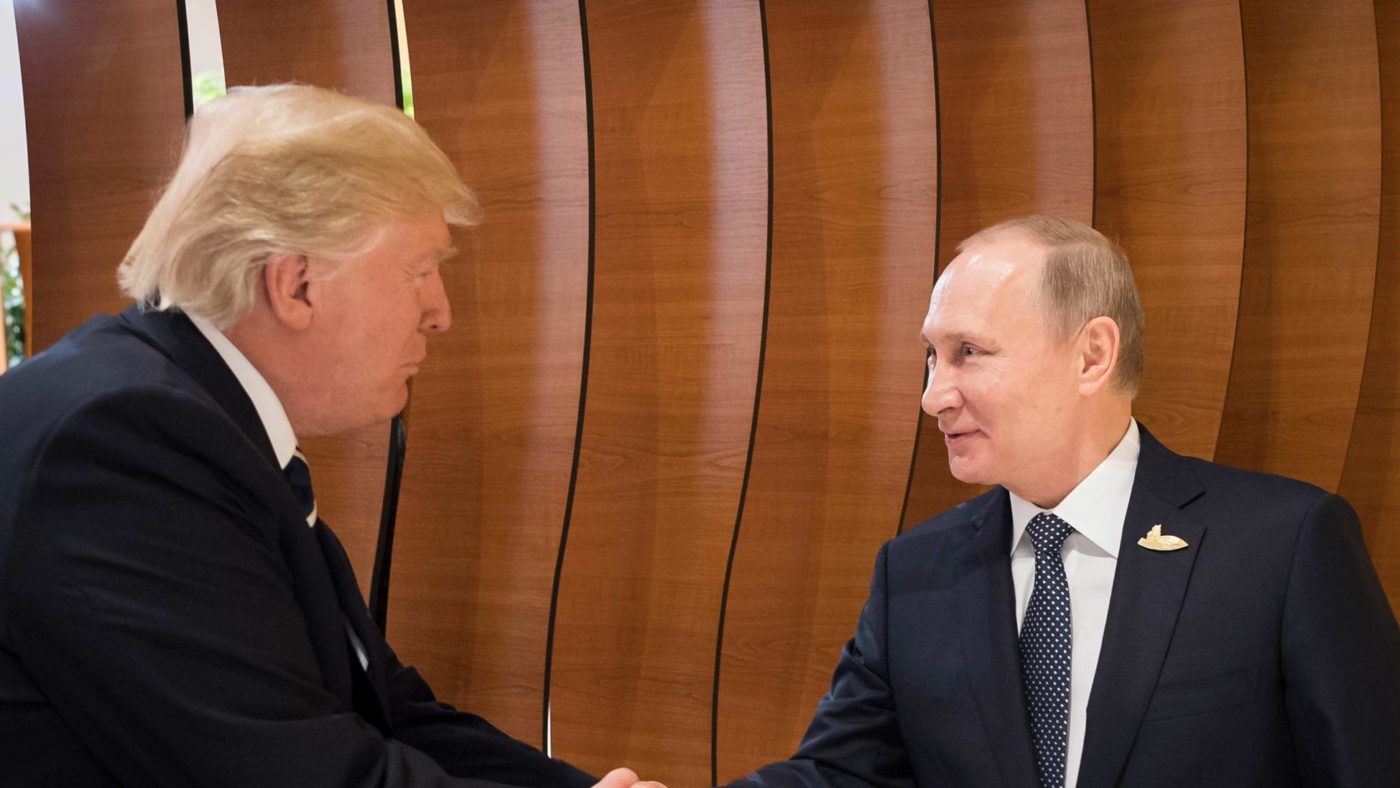With the World Cup in full swing, it’s easy (and maybe even useful) to forget about the tensions engulfing relations between Russia and the West. But however tempting such escapism may be, sporting festivals – even hugely successful ones – can hardly break impasses between governments.
The tournament’s joy will fade quickly. The political problems, on the other hand, are here to stay. And with them, too, is the new reality of the Cold War Two we’ve entered.
This, at least, is how things are seen both within the expert community and by political leaders. “The Cold War”, Antonio Guterres, the UN secretary-general has noted, “is back with a vengeance”.
But to what extent does the bout of antagonism we’re currently seeing resemble the one following Winston Churchill’s Iron Curtain speech in 1946? And can it be stopped sooner rather than later?
We can still discern some aspects of the US-Soviet rivalry in today’s situation. Western Kremlinologists are revising the good old-fashioned containment playbook, while the Russians are slipping deeper into a “besieged fortress” mentality. A proxy war is being waged in Syria, and strategic stability seems to be under threat once again.
Yet there are also conspicuous differences between where we are right now and where we were forty years ago.
For one, socio-economic competition between Russia and the West has vanished. The Soviet Union advanced the communist model which, until the late 1970s many in Moscow – and even some in the West – saw as a viable alternative to capitalism. The same cannot be said of Russia, a semi-authoritarian, nationalistic regime, which nevertheless purports to recognise the benefits of both democracy and market capitalism.
Another difference lies in Russia not being nearly as powerful as the Soviet Union. It lacks the resources to establish an array of proxies in the Third World the way the USSR did. Nor, for that matter, does it have the means to rival the West’s military and economic footprint in either the Balkans or the Baltic states. Russia’s diminished status means the stakes involved in the current confrontation carry less significance than forty years ago. Rather, it is the shape of the global order itself that matters.
So herein lies the chief distinction between the original Cold War and Cold War 2. The former involved a large-scale geopolitical rivalry in the context of a bipolar international order. The latter involves disparate and limited clashes in the struggle to shape a new world order.
For Americans and Europeans, those rules have a normative dimension: Geopolitical conflicts can be about “right” and “wrong”, not just about “strong” and “weak”. By this logic, balance of power and realpolitik can be a means in the fight for “liberal values” (think of the US alliance with Saudi Arabia) in some regions, but never an end in itself.
The Russians see things through a different lens. For them, the world order revolves around power and sovereignty. According to this understanding, states can pursue its regional and global interests to the extent its military prowess allows it to. At the same time – and this is where “sovereignty” comes in – international players should not intervene in other strong actors’ regional spheres or domestic politics.
From the late 1990s to the early 2010s, Russia grew increasingly exasperated with the post-Cold War normative order. It saw signs of Western duplicity in the interventions in both Kosovo and Iraq. The removal of Muammar Gaddafi by the NATO allies and subsequent Western support for the Maidan unrest in Ukraine cemented those perceptions, stoking Putin’s fears over the Kremlin itself falling victim to the next “colour revolution”.
Hence the Kremlin’s desire to redraw the global rules. Its first aim is to make the West formally recognise parts of its so-called “near abroad”, namely Eastern Ukraine, Belarus, and the disputed territories of Abkhazia and South Ossetia (formerly under Georgia’s control) as within Moscow’s sphere of influence. The second aspiration involves redressing the balance between the sovereign rights of states and humanitarian values in favour of the former – this means doing away with liberal interventionism.
Should the West continue to drag its feet, the Russians believe they can force it to the negotiating table by acting as a global spoiler – destabilising the Balkans and post-Soviet space, waging cyber-attacks that fall under the threshold of NATO Article 5, and curbing American influence in the Middle East.
The West is not prepared to budge. As recent tightening of sanctions against Moscow clearly shows, the more the Kremlin tries to be a nuisance, the tougher the US punishment will get.
For this stand-off to end, one side or the other must reconsider its priorities on a domestic level. Either the US and Europe will understand they are no longer able to sustain pressure on Russia (and possibly China) and change the rules. Or Moscow, plagued by economic stagnation, will put its global ambitions to one side.
In this context the presidency of Donald Trump, the first American leader in a long time who is wary of foreign policy idealism, may be a mitigating factor. While the US political establishment constrains him from seeking any sort of “grand bargain” with Moscow, his transactional approach could provide for a better atmosphere in relations with the Kremlin’s foreign policy cynics.
That is why the upcoming Putin-Trump meeting matters, as do military contacts between the two countries. Not for the sake of improving relations, but because of the vital need to mitigate risks.


